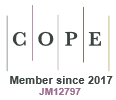Reduction of Fire Hazard Through Thinning/Residue Disposal in the Urban Interface
KD Kalabokidis and PN Omi
International Journal of Wildland Fire
8(1) 29 - 35
Published: 1998
Abstract
Alternative fire hazard reduction techniques are needed for managing fuel profiles in forest ecosystems located within the so-called wildland-urban interface. The present study includes experimental fuel manipulations initiated along the Rocky Mountain National Park interface with residential areas in Colorado, USA. Three thinning/slash disposal treatments were applied on two lodgepole pine (Pinus contorta) stands: thinning with whole-tree removal; thinning with stem removal - lopping and scattering; and thinning with stem removal - hand piling and burning. Results indicate that treatments reduced surface fire behavior parameters, bringing them down and closer to Limits of direct attack methods. Crown fire potential was decreased not only because of canopy removal, but also as a result of potential reduction in heat generated by surface fuels. Projected fire behavior for the thinning-without-slash-removal scenario indicates the possibility of serious control problems with major fire runs and crown fires given an outbreak.Keywords: Forest fires; Fuels management; Wildland-urban interface; Colorado; Pinus contorta
https://doi.org/10.1071/WF9980029
© IAWF 1998


